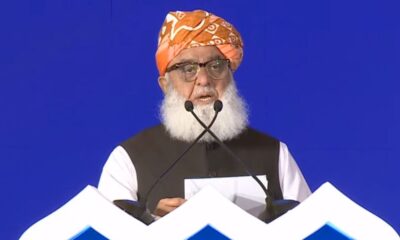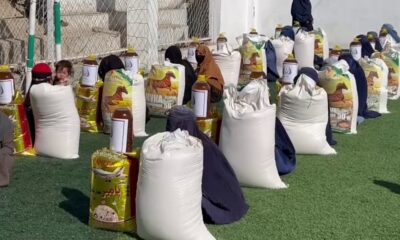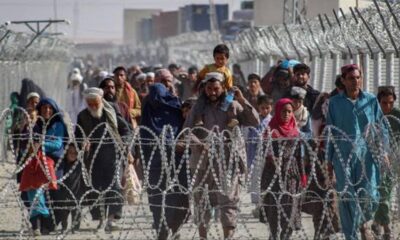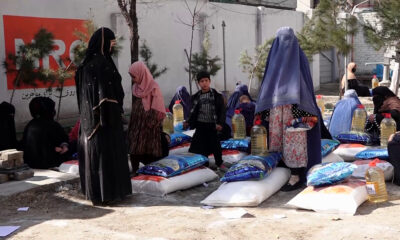Latest News
Australia agrees on increased US air deployments in Australia
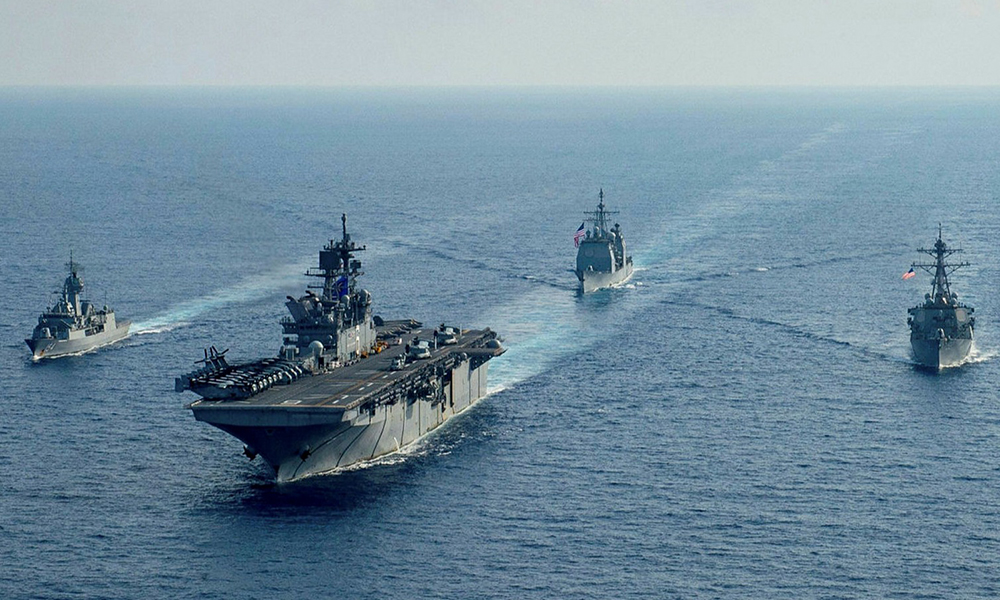
Australia and the United States have reached new force posture agreements that will see greater air cooperation through rotational deployments of all types of U.S. military aircraft to Australia, Australian Defense Minister Peter Dutton said on Thursday.
Speaking at a joint news conference after meetings between the U.S. and Australian foreign and defense ministers in Washington, Dutton said the two sides would be “significantly enhancing our force posture cooperation, increasing interoperability and deepening alliance activities in the Indo-Pacific.”
“This will include greater air cooperation through rotational deployments of all types of U.S. military aircraft to Australia,” he said.
“We’ve also established combined logistics sustainment and capability for maintenance to support our enhanced activities, including logistics and sustainment capability for our submarines and surface combatants in Australia.”
U.S. Secretary of Defense Lloyd Austin said the meeting had endorsed “major force posture initiatives that will expand our access and presence in Australia.”
Dutton and Austin spoke a day after the United States and Britain said they would provide Australia with the technology and capability to deploy nuclear-powered submarines.
China on Thursday denounced the new Indo-Pacific security alliance between the United States, Britain, and Australia, saying such partnerships should not target third countries and warning of an intensified arms race in the region.
U.S. Secretary of State Antony Blinken on Thursday said France was a “vital partner” in the Indo-Pacific region and that Washington would continue to cooperate with Paris, comments that appeared aimed at calming French anger after the United States, Australia, and the United Kingdom clinched the historic defense export contract to supply Australia with submarines.
The three countries announced on Wednesday they would establish a security partnership for the Indo-Pacific that will help Australia acquire U.S. nuclear-powered submarines and scrap the $40 billion French-designed submarine deal.
France has reacted angrily to the loss of the deal, calling it a “stab in the back.”
Speaking at a news conference after meetings between the U.S. and Australian foreign and defense ministers in Washington, Blinken said Washington had been in touch with its French counterparts before the announcement of the submarine deal.
In 2016 Australia had selected French shipbuilder Naval Group to build a new submarine fleet worth $40 billion to replace its more than two-decades-old Collins submarines.
The United States and its allies are looking for ways to push back against China’s growing power and influence, particularly its military buildup, pressure on Taiwan and deployments in the contested South China Sea.
Latest News
Pakistan’s mistakes played significant role in rise of terrorism: Maulana Fazl-ur-Rehman
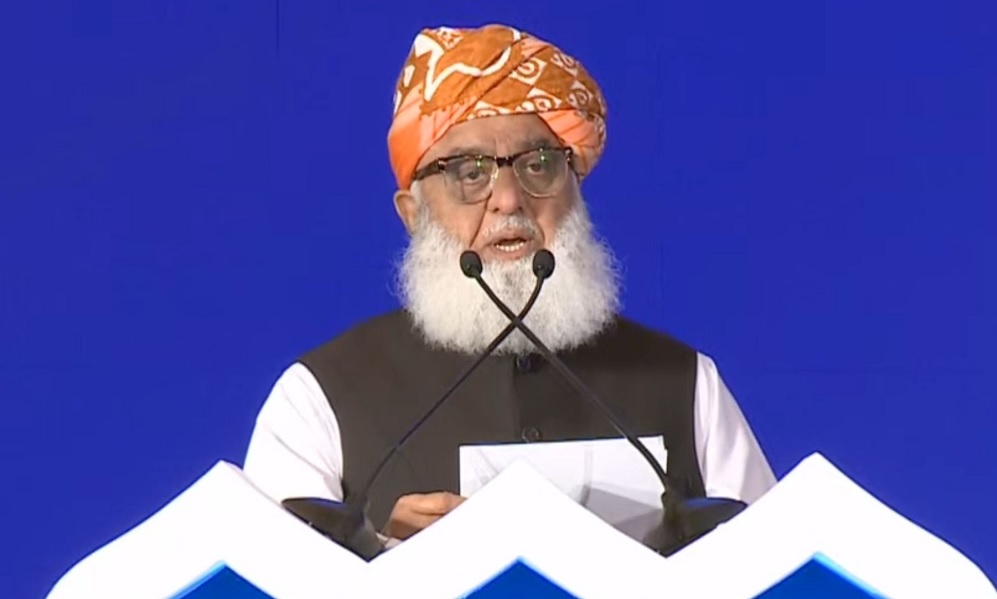
Maulana Fazl-ur-Rehman, chief of Pakistan’s Jamiat Ulema-e-Islam-Fazl (JUI-F) political party, has said that Pakistan’s mistakes played a significant role in the rise of terrorism.
In an interview with Samaa TV, the politician noted that Pakistan provided refuge to 30 to 40 million people during the Afghan war against the Soviet Union.
Rehman expressed his concern about the possibility of a war with Afghanistan, saying: “Whether there is a threat of war with Afghanistan or not requires further thought. War would not be beneficial for either Afghanistan or Pakistan.
“We need a comprehensive strategy for peace in Afghanistan, and the rulers must think about these matters and involve all political parties,” he said.
Pakistani officials have repeatedly claimed that militants attacking Pakistan have sanctuaries in Afghanistan, a charge the Islamic Emirate denies.
Latest News
Deputy PM inaugurates launch of Arghandi Transport Terminal Project in Kabul Province
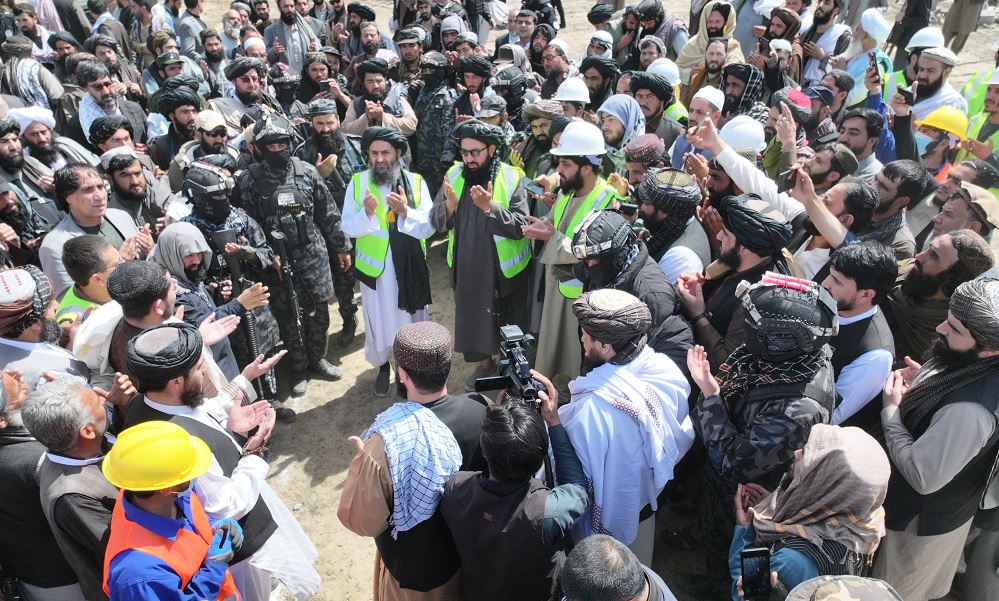
Mullah Abdul Ghani Baradar Akhund, Deputy Prime Minister for Economic Affairs, on Sunday inaugurated the start of construction work on the Arghandi Transport Terminal in Paghman District of Kabul Province.
The inauguration ceremony was attended by the Acting Minister of Transport and Aviation, Mullah Hamidullah Akhundzada, representatives from the private sector, and a number of local residents.
Baradar said the initiative was a vital step in the development of transport infrastructure in the country.
He stated that the development and expansion of transport infrastructure is an essential step toward economic growth, national development, and domestic and regional connectivity.
According to him, decades of war and corruption resulted in the sector having been neglected.
He said existing infrastructure has deteriorated due to poor quality construction; public lands have been usurped by individuals; and that highways and roads have been significantly narrowed.
Baradar also pointed out the need for investment in the transport sector; for the recovery of usurped state land; and the identification and restoration of original roads. He said these factors were among the core national objectives of the Islamic Emirate of Afghanistan.
In line with these goals, construction work on the Arghandi Transport Terminal got underway on Sunday.
Baradar said the Islamic Emirate is not only firmly committed to the development and expansion of transport infrastructure but is also actively pursuing other fundamental strategic objectives.
The Arghandi Transport Terminal in Kabul Province will be constructed on approximately 900 jeribs of land and will cost about 1.285 billion afghanis.
The project is expected to be completed by the private sector within two years.
Upon completion, the terminal will enhance transportation facilities, play a key role in improving the efficiency and organization of logistics and transit operations, reduce transportation costs and traffic congestion, and provide employment opportunities to a large number of citizens.
Latest News
Bayat Foundation distributes food aid to dozens of needy families in Balkh
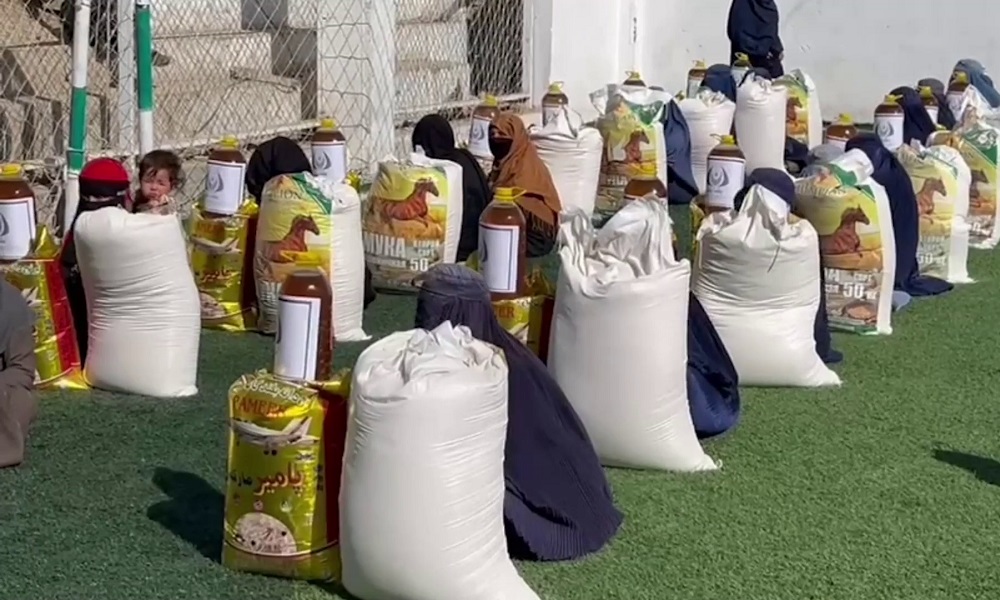
Bayat Foundation distributed food packages to dozens of needy families in Afghanistan’s northern Balkh province this weekend.
The packages included flour, rice, and cooking oil.
Officials of Bayat Foundation in Balkh said that aid distribution will continue in other provinces of the country until the end of the holy month of Ramadan.
“In continuation of Bayat Foundation’s assistance, this time we have distributed our Ramadan aid in Mazar-e-Sharif, which includes flour, rice, and cooking oil, and God willing, this assistance will continue,” Yafes Saqib, Bayat Foundation representative in Balkh, said.
Meanwhile, beneficiaries welcomed the distribution of the aid packages, saying that Bayat Foundation has played an important role in reaching out to the poor, the needy, and in reducing poverty.
“We are very happy. It is the month of Ramadan. May God help anyone who helps us poor people,” Aynuddin, an aid recipient, said.
“I don’t have a breadwinner in my family. On Thursdays, I go and collect Pepsi cans to find bread for my children,” Zarmina, another aid recipient, said.
The assistance comes at a time when international organizations have warned of increasing poverty in the country.
-
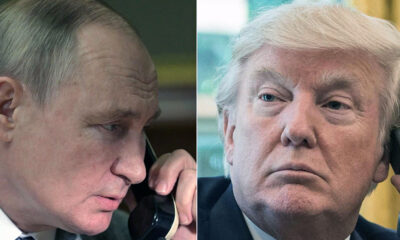
 World5 days ago
World5 days agoPutin agrees to 30-day halt on energy facility strikes in Ukraine
-

 Latest News5 days ago
Latest News5 days agoTorkham crossing to reopen after 25-day shutdown
-
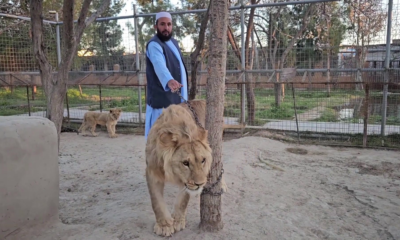
 Latest News4 days ago
Latest News4 days agoHelmand environmental department opens new Zoo
-
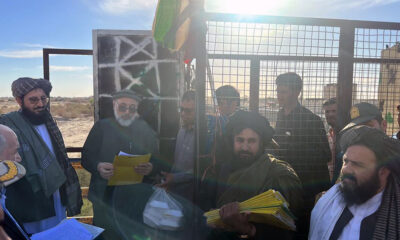
 Latest News4 days ago
Latest News4 days agoAfghan prisoners in Iran sent home
-

 Latest News4 days ago
Latest News4 days agoAfghanistan ranks last in World Happiness Report
-

 Latest News4 days ago
Latest News4 days agoTrade resumes as Afghanistan and Pakistan reopen key Torkham border crossing
-

 Latest News4 days ago
Latest News4 days agoRights watchdog calls on Pakistan to ‘immediately stop’ forced deportations of Afghan refugees
-
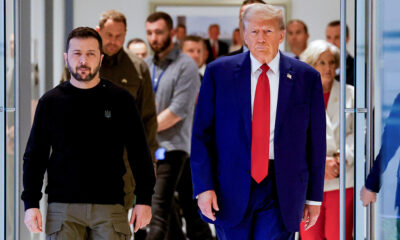
 World4 days ago
World4 days agoTrump, Zelenskiy pledge in phone call to work for end to war in Ukraine


